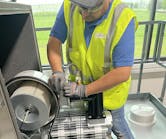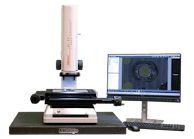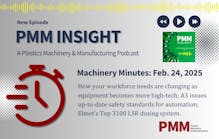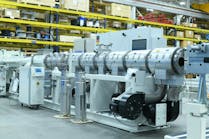UAW strikes Stellantis truck and GM SUV plants; concern for parts supply chain grows
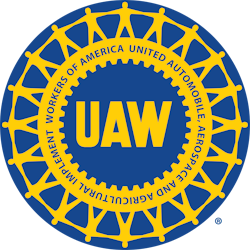
By Karen Hanna
The United Auto Workers (UAW) strike is now taking aim at some of the Big Three’s biggest plants, with the news Oct. 24 that 5,000 members at the General Motors (GM) Arlington Assembly in Texas have joined the picket lines.
On Oct. 23, 6,800 UAW members at Stellantis’ biggest plant walked off the job at the Sterling Heights Assembly Plant (SHAP) in Michigan. That came after the union shut down Ford’s Kentucky Truck Plant in Louisville.
In a strategy that’s already created significant challenges for auto parts makers and suppliers, the UAW’s cascading strike — which it calls a Stand Up Strike — has put pressure on all three of country’s biggest automakers at once — with walkouts at plants that make some of their most-popular vehicles. The latest expansion comes just hours after GM reported third-quarter earnings of $3.5 billion.
“Another record quarter, another record year. As we’ve said for months: record profits equal record contracts,” UAW President Shawn Fain said in announcing the Arlington walkout. “It’s time GM workers, and the whole working class, get their fair share.”
The strike, which will soon enter its sixth week, has ballooned to include more than 45,000 UAW members. While assessing the impact of the strike on the plastics industry is difficult, experts say it’s making its mark.
Of the automotive-parts suppliers that have not yet initiated layoffs, 80 percent planned to do so in early November if the strike is not resolved, according to a survey conducted by the Motor & Equipment Manufacturers Association (MEMA) between Oct. 16 and Oct. 18. Seventy-nine percent of the 546 respondents said they are concerned about the strike.
“I also worry about … bankruptcies because we’ve had just nonstop disruption since COVID,” said Terry Onica, a supply chain expert. As the director for automotive business for QAD, she said her company’s manufacturing enterprise resource planning software offerings can help manufacturers, including plastic parts makers, gain visibility into the supply chain and enhance predictability.
With more than 30 years in the industry, Onica said she has never seen the automotive supply chain in such a tenuous condition. She urged parts makers to start planning for a return to operations, even as they’re navigating current challenges created by the strike.
“So, I really worry about how fragile the lower tiers are in this situation because they just have had one hit after another. … We had COVID and the semiconductors [shortage] … all kinds of global disruptions. I worry how much they can handle,” she said.
According to figures cited in a Plastics Industry Association report published Oct. 19, about one-third of the parts that make up cars are made of plastics, with the value of plastics in vehicles hitting $28 billion last year.
But how much the UAW strike is affecting the plastics industry is difficult to determine.
“Estimating the effect on plastics, however, is not straightforward due to the uncertainty of the strike’s end-date and the extent to which the strike affects the automobile industry’s supply chain. Industry stakeholders must remain vigilant, adapt as needed, and work collaboratively to navigate the ever-changing landscape shaped by labor, production, and economic considerations,” the report states.
According to the MEMA survey, 84 percent of suppliers have received cancellation orders from their customers, with 95 of them saying they had little to essentially no notice. An earlier survey found that 39 percent of parts suppliers had laid off at least some of their workers; that number remains largely unchanged.
Starting with its Oct. 11 announcement shutting down Ford’s Kentucky Truck plant, the UAW ended its early routine of expanding its strike on Fridays, opting instead for the element of surprise. In an address Oct. 20, Fain appeared to buck up members for a long fight while warning Stellantis, Ford and GM that news of more strikes could come at any time.
“The bottom line is we’ve got cards left to play, and they’ve got money left to spend. That’s the hardest part of a strike. Right before a deal is when there is the most aggressive push for that last mile. … They just want to wait us out. They want division. They want fear. They want uncertainty. And what we have is our solidarity,” he said during his regular Friday update, which the union live-streamed over multiple social media channels.
Workers at the Arlington plant make the Chevrolet Tahoe, Chevy Suburban, GMC Yukon and Cadillac Escalade. The SHAP in Michigan makes Stellantis’ best-selling Ram 1500 trucks, while Ford’s Louisville plant makes Ford Super Duty pickups as well as the Ford Expedition and the Lincoln Navigator.
In an interview earlier this month, before the two plants joined the strike, Jeff Ignatowski, president of Champion Plastics, Auburn Hills, Mich., characterized any action against big-truck manufacturing as “a nuclear option.” The custom molding shop derives a significant portion of its business from the Arlington plant.
Onica said OEMs and suppliers need to remember that eventually the Big Three and UAW will strike a deal. While the strike continues — and even after it ends — communications strategies honed during the COVID-19 pandemic and subsequent supply chain disruptions could help manufacturers weather their current challenges.
“Nobody wants a surprise, so everybody would rather work it out in advance than being shocked afterwards. So, I wouldn’t hesitate to just reach up to the next tier and say, ‘I just want to know because I want to start planning where do our parts go,’ so I know where you know what the [problems] might be,” she said.
Onica advised manufacturers to reach out to both their suppliers and their customers.
For plastic processors and others affected by the strike, QAD offers a restart checklist that can help guide procedures for ramping production back up.
“The restart can be just as problematic as the shutdown,” Onica said.
Contact:
Plastics Industry Association, Washington, 202-974-5200, www.plasticsindustry.org/contact-us
QAD Inc., Santa Barbara, Calif., 805-566-6100, www.qad.com
Karen Hanna | Senior Staff Reporter
Senior Staff Reporter Karen Hanna covers injection molding, molds and tooling, processors, workforce and other topics, and writes features including In Other Words and Problem Solved for Plastics Machinery & Manufacturing, Plastics Recycling and The Journal of Blow Molding. She has more than 15 years of experience in daily and magazine journalism.
ABB appoints chief sales officer for B&R
KraussMaffei now building extruders in U.S.


